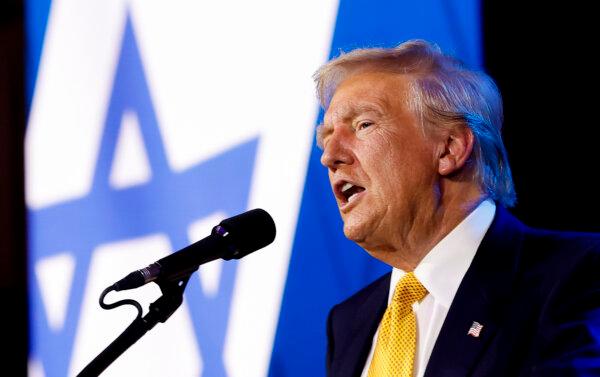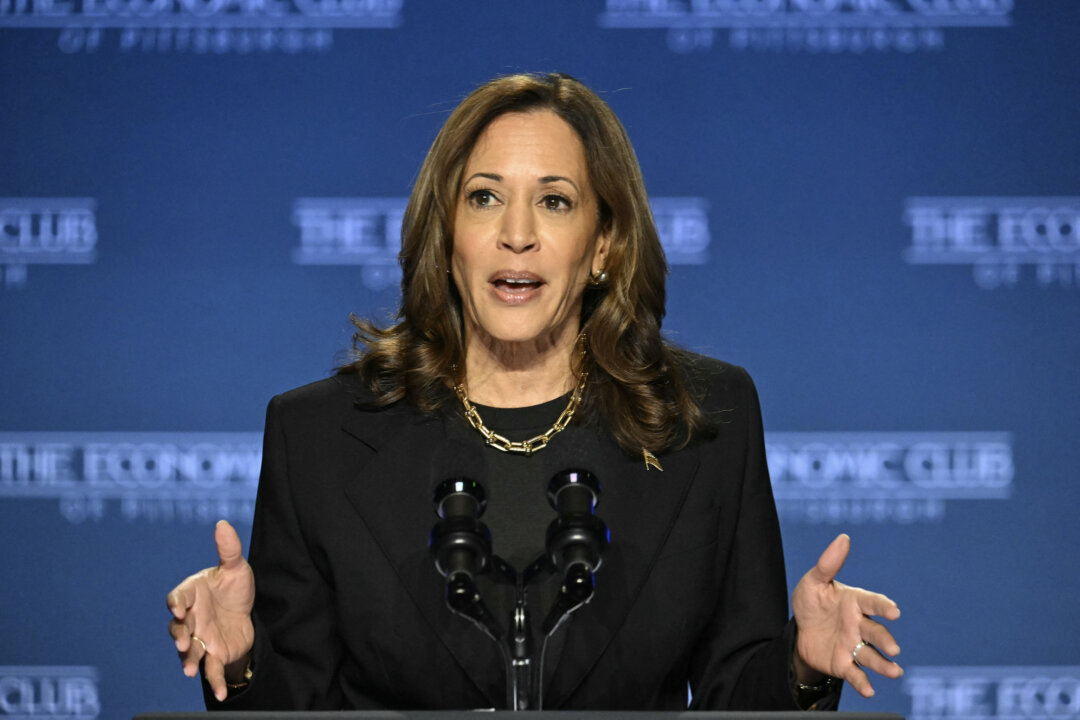While speaking in Steel City, Harris said she considers herself capitalist and believes in free and fair markets.
Vice President Kamala Harris announced on Wednesday a new proposal aimed at boosting U.S. manufacturing during a speech in the battleground state of Pennsylvania.
While speaking at the Economic Club of Pittsburgh, the Democratic presidential nominee said she would invest in critical sectors, offer tax credits for manufacturers, and double the number of registered apprenticeships by the end of her first term.
“We will prioritize investments for strengthening factory towns,” Harris said.
“I’m a capitalist. I believe in free and fair markets,” she said, adding that she strongly supports workers and labor unions.
Harris said her “opportunity economy” approach will enable the United States to lead in future industries and ensure that America, not China, “wins the competition for the twenty-first century.”
“We will invest in biomanufacturing and aerospace, remain dominant in AI and quantum computing, blockchain and other emerging technologies, expand our lead in clean energy, innovation, and manufacturing,” she said.
The economy continues to be a top issue on the campaign trail and a thorn in the Harris campaign’s side.
A national NBC News survey handed former President Donald Trump a nine-point advantage of who voters trust more to improve the economy.
As part of his plan to restore manufacturing, Trump also wants to use various tools to convince companies to shift jobs to the United States.
In a Savannah, Georgia, speech on Sept. 24, the Republican nominee suggested offering tax breaks and federal land to entice foreign manufacturers while slapping tariffs on businesses that do not relocate to the United States.
“Foreign nations will be worried about losing their jobs to America,” Trump said. “It won’t even be difficult. Your only worry will be deciding which job to take.”
Trump said the United States would become the new hub for auto manufacturing, robotics, and shipbuilding.
Throughout the 2024 election cycle, polls have consistently highlighted that the economy and immigration rank among the top issues for voters.
The latest KFF survey showed that the economy and immigration topped abortion as the most important issues in the election race.
A recent Associated Press-NORC Center for Public Affairs Research poll found that 80 percent of voters say the economy is the main issue heading into November’s election. Moreover, the poll also revealed that only one-third of registered voters think the national economy is somewhat or very good.
In addition, a national NBC News poll showed that 65 percent of likely voters believe the country is heading in the wrong direction.
The vice president is trimming the Republican challenger’s lead on who is better equipped to manage the economy.

The AP-NORC poll revealed that about four in 10 respondents say Trump would better handle the economy. A similar figure was applied to Harris.
In the home stretch of the presidential race, both candidates have been trying to differentiate themselves on how to improve the U.S. economy.
Harris’s ‘Opportunity Economy’
The Harris campaign released its “opportunity economy” agenda earlier this month, ahead of her debate with Trump.
Harris has pledged to lower costs for low- and middle-income families. Her plan includes imposing a federal ban on corporate price gouging on food and groceries, restoring and increasing the pandemic-era Child Tax Credit, exempting tipped wages from the income tax, and raising the minimum wage.
She also vowed not to raise taxes on individuals making less than $400,000, repeating President Joe Biden’s policy promise.
The vice president said she would address housing affordability by employing tools to spur new construction and support homebuyers.
In order to build three million units over the next four years, the Harris campaign proposed a $40 billion fund to incentivize local governments to construct more affordable homes and proposed tax credits for home builders.
Harris has also proposed offering $25,000 downpayment assistance for first-time homebuyers.
To help cover the cost of her spending plans, Harris has proposed tax hikes of between $4 trillion and $5 trillion over the next 10 years.
This includes raising the top tax rate on individual income to 39.6 percent, increasing the corporate tax rate to 28 percent, boosting the corporate alternative minimum tax rate to 21 percent, and quadrupling the excise tax on stock buybacks to 4 percent.
Trump’s ‘National Economic Renaissance’
Trump has pitched various economic policy proposals to appeal to voters across the board, from high-income households to seniors to working-class individuals.
The former president has pledged to combat inflation by expanding domestic energy production, stopping illegal immigration, slashing wasteful government spending, and lowering commodity prices by ending military conflicts.
On the tax policy front, he also wants to make the Tax Cuts and Jobs Act permanent. Further, Trump has vowed to eliminate taxes on tips, remove taxes on Social Security benefits, and exempt overtime pay from the income tax.
To offset any revenue reduction, Trump has outlined broad tariffs: at least 60 percent on Chinese imports and a 10 percent universal levy on all imported goods.
The Republican nominee has long advocated for bringing crucial supply chains back to the United States and signing fair and reciprocal trade deals. During his first term, the former president renegotiated and signed new trade deals, including the United States-Mexico-Canada Agreement (USMCA), which replaced the North American Free Trade Agreement (NAFTA) in July 2020.

